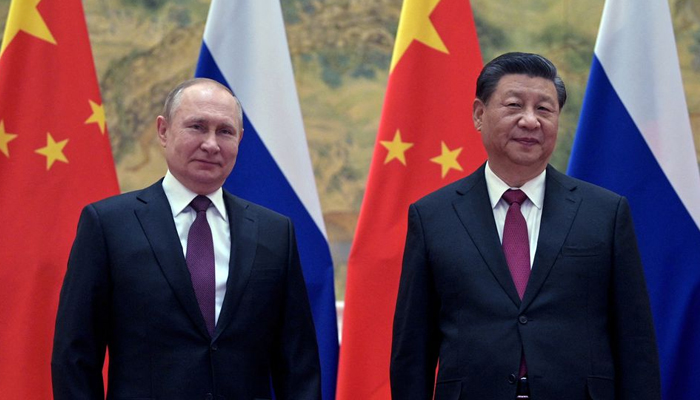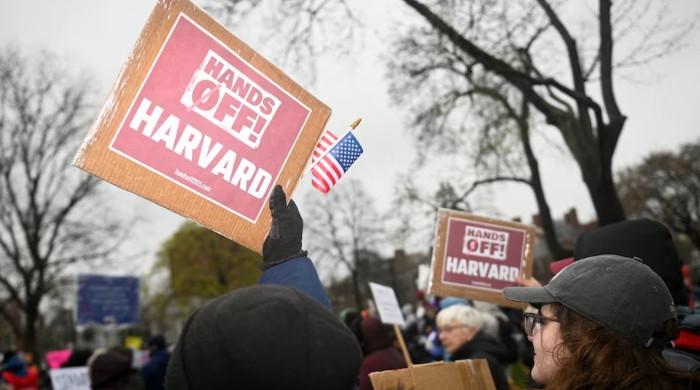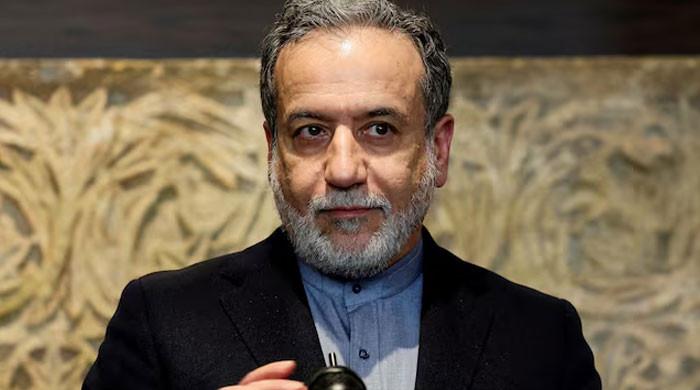Putin arrives in Beijing for Winter Olympics with gas supply deal for China
Putin touches down in Beijing for Winter Olympics; brings deal to increase natural gas supply amid rising tensions with West
February 04, 2022

BEIJING: Russian President Vladimir Putin touched down in Beijing for the 2022 Winter Olympics on Friday, bringing with him a deal to increase natural gas supply to China amid rising tensions with the West.
Putin told Chinese President Xi Jinping in Beijing that Russia had prepared a new deal to supply China with an additional 10 billion cubic metres of natural gas, according to a broadcast of their talks aired in Moscow.
Russia, one of the global leaders in hydrocarbon supplies, has been strengthening its ties with China, the world's top energy consumer against the backdrop of Moscow's standoff with the West over Ukraine and other issues.
Chinese state television CCTV said Putin had arrived in the Chinese capital, noting that he had, like China, expressed opposition to the "politicization" of the Games.
CCTV footage showed a jet flying with the Russian and Chinese flags. Next to it were jets with Mongolian and Serbian flags. Serbian president Aleksandar Vucic and Prime Minister L Oyun-Erdene, of Mongolia, are expected to attend the opening ceremony later on Friday.
Earlier, state media reported that Qatar's Emir Sheikh Tamim bin Hamad Al Thani and the United Arab Emirates' Crown Prince Sheikh Mohamed bin Zayed Al Nahyan had also touched down.
The United States and some of its allies have announced a diplomatic boycott of the Games in protest at China's human rights record. China denies any abuses.
Putin and Xi were expected to have lunch together on Friday, and could sign more than 15 agreements, according to the Kremlin, with new deals being prepared in relation to natural gas.
The Olympics, already transformed by the coronavirus pandemic and to be held within a strictly closed loop, have also been overshadowed by the threat of a Russian invasion of Ukraine.
Russia and China coordinated their positions on Ukraine during a meeting between their foreign ministers, Wang Yi and Sergei Lavrov, in Beijing on Thursday, the Chinese foreign ministry said.
In response, the United States warned Chinese firms that they would face consequences if they sought to evade export controls imposed in Moscow in the event of Russia invading Ukraine.
"We have an array of tools that we can deploy if we see foreign companies, including those in China, doing their best to backfill U.S. export control actions, to evade them, to get around them," U.S. State Department spokesman Ned Price told a regular news briefing.
Before Lavrov, Beijing had not received foreign political guests for almost two years as it tried to keep the coronavirus out.
Thousands of Russian troops have massed near the border of Ukraine, raising fears of an invasion, which Russia denies planning. Russia has asked NATO to bar Ukraine from joining and to pull out of eastern Europe.











